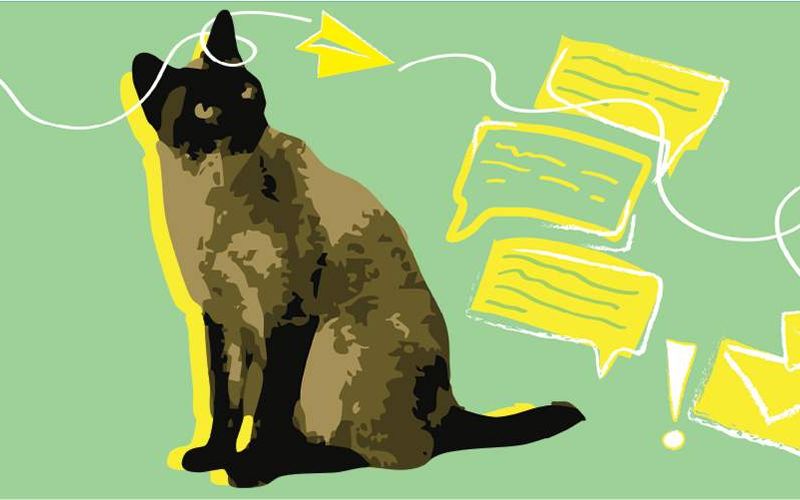

Communicating the Importance of Fecal Testing with Email Templates
Routine fecal testing is essential for identifying and preventing parasitic infections in pets. Many intestinal parasites, such as hookworms, roundworms, whipworms, Cystoisospora, and Giardia, can go undetected without regular screening. Modern testing methods that look for antigens instead of eggs show higher positivity rates than previously thought. Untreated parasitic infections can cause chronic or recurrent intestinal issues and allow for easier spread to other pets.
Effective communication about fecal testing is critical in gaining compliance from pet owners. Email is a great way to reach pet owners and reinforce pre-visit instructions so they're more likely to arrive with the sample you requested and agree to testing.
Get tips for communicating with clients about the importance of Fecal Dx antigen testing.
Here are three email templates you can use in your practice to get your message across loud and clear.
Message #1: Address Common Misconceptions
Subject: Why your pet needs a fecal test—even if they look healthy!
Dear [Client's Name],
Did you know that a study of 300 dog parks in the U.S. found 1 in 5 dogs tested postive for intestinal parasites?
Untreated parasites, such as Giardia, roundworms, and hookworms, can have lasting health effects. Plus, even if your pet doesn't have symptoms, they could pass the parasite to another pet—or possibly a human family member.
Our practice follows the Companion Animal Parasite Council (CAPC) recommendation to routinely screen all pets for intestinal parasites—four times in the first year for puppies and kittens and twice yearly for adults. Testing is easy and affordable—all you have to do is bring us a sample, and we'll do the rest.
Contact us or simply drop off a fecal sample to ensure your pet is parasite-free.
Message #2: Fecal Sample Collection and Storage Tips
Subject: The scoop on poop: Collecting samples for parasite screening tests
Dear [Client's Name],
We look forward to seeing you and [Pet's Name] at your upcoming visit. As part of our routine health screening protocol, we ask that you bring a fresh stool sample to your visit. Fecal testing is a simple way to check your pet for harmful parasites.
Here are a few tips to ensure the most accurate results:
-
When to collect it: Collect a sample within 12 to 24 hours of your appointment. Pick it up immediately after your pet goes.
-
How much to bring: We only need a small sample. If you have a large pet, use a plastic spoon to collect a 1-inch piece of poop.
-
What to put it in: We can provide sample containers upon request, or you can use a small sandwich bag.
-
How to store it: Freezing can alter test results, so double-bag the sample and keep it in the fridge if you collect it the day before your visit.
Please contact us with any questions about [Pet's name]'s visit.
See you soon!
Message #3: Pre-visit Reminder
Embed pre-visit fecal sample instructions into your existing reminder emails with a short blurb:
Don't forget to bring a fecal sample to [Pet Name]'s upcoming visit. Routine fecal screening detects intestinal parasites that could affect your pet's health, even if they don't seem sick. Here's what to do:
-
Collect a fresh sample the night before or the morning of your visit.
-
If you need to store the sample overnight, keep it in the fridge, but don't freeze it.
-
Don't forget to bring the sample to your appointment.
We appreciate your help keeping [Pet's Name] healthy and parasite-free!
How To Use These Templates
End emails with a call to action encouraging readers to take the next step. For example, you can ask pet owners to call with questions, log on to their portal to check reminder dates, book a visit online, or click a link to visit an area of your website explaining testing protocols.
To get the most from the email templates above, employ them at strategic times. Experiment with email frequency and timing to see how they affect compliance. Here are a few suggestions:
-
Message 1: Address misconceptions — Send as part of an educational newsletter, after a new client visit, annually as a refresher, or alongside a reminder to schedule routine care.
-
Message 2: Collection and storage — Send a few days before an upcoming wellness appointment.
-
Message 3: Pre-visit reminder — Embed a blurb into a confirmation email sent the day before a visit.
Use the templates alone or combine them with other educational materials and reminders to emphasize the importance of fecal testing, improve compliance, and ensure the health of your patients and community.







